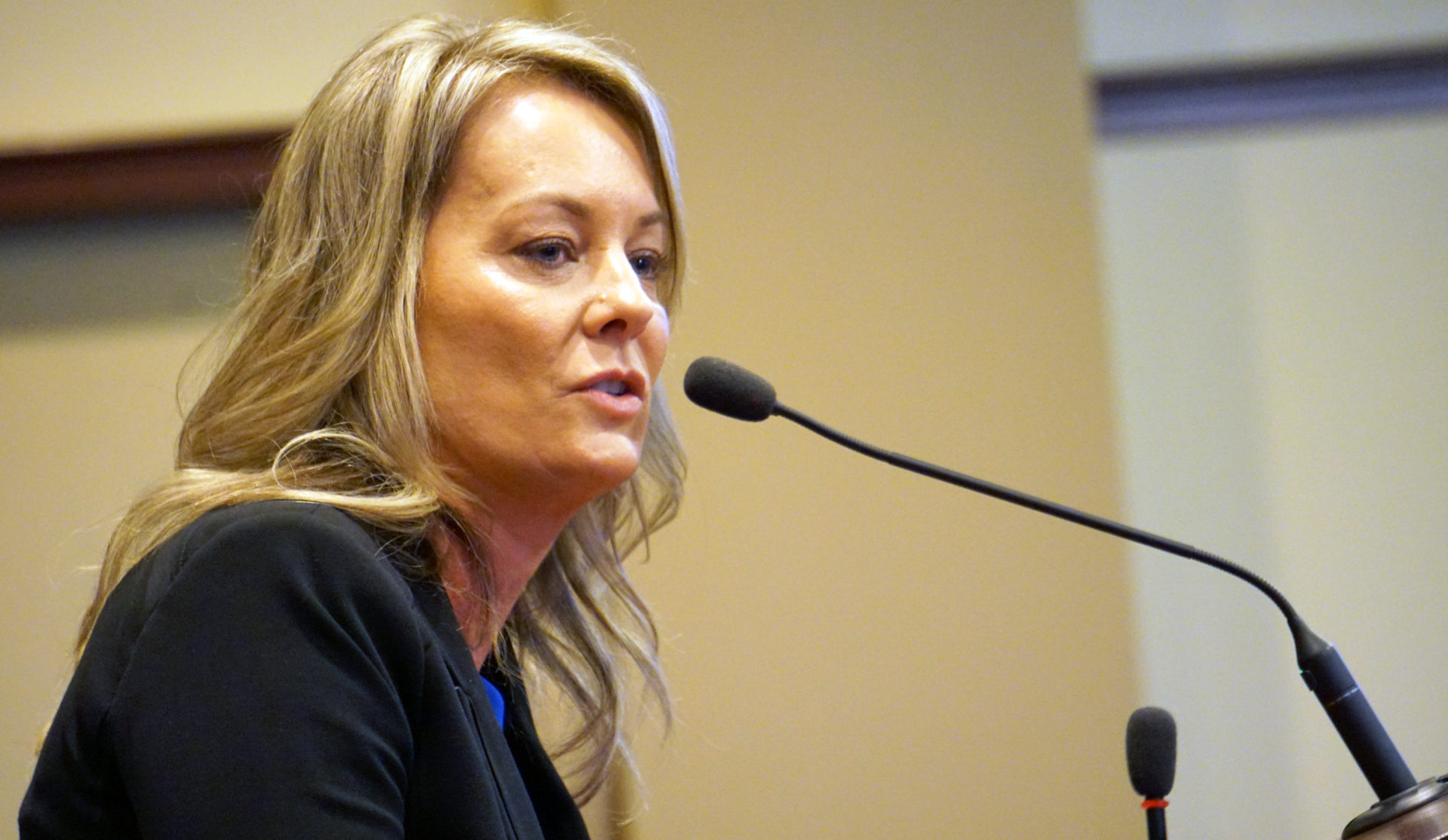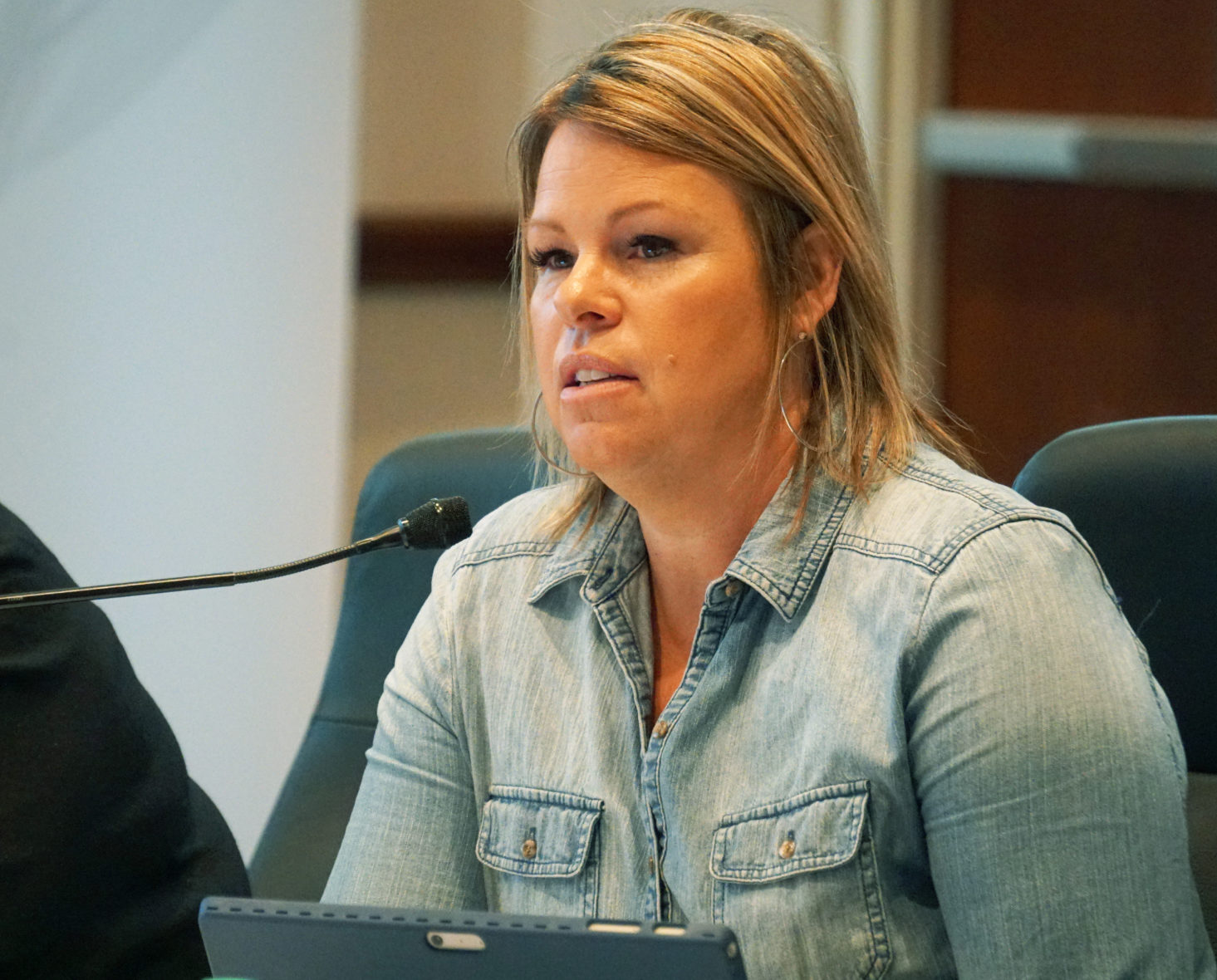Most Idaho school districts offer all-day kindergarten to at least some of their students — in part because of a multimillion-dollar state program designed to help at-risk readers.
Districts have to scramble to pay for all-day kindergarten, because the state only provides direct funding for half-day sessions. Districts are cobbling together the balance from a variety of sources, according to an Idaho Education News analysis. Only a handful of districts charge tuition, making parents pick up the added cost for the extended school day.
Idaho Education News surveyed every district and charter in the state this summer, asking school leaders if they offered all-day kindergarten or pre-kindergarten programs, and how they covered the costs of early education.
The growth in all-day kindergarten coincides with Gov. Brad Little’s push for Idaho’s “literacy initiative.” Little convinced the 2019 Legislature to double the budget for the program. Districts and charters can use their share of the $26 million in many ways. They can add teachers, for example, or hire coaches to train teachers. All-day kindergarten is one option. But it’s a popular one.
Survey statistics
Some key findings from the Idaho Education News survey:
- At least 81 of Idaho’s 115 school districts offer some form of all-day kindergarten. At least 16 charter schools offer an all-day kindergarten option as well.
- Schools find money for all-day kindergarten from a variety of sources. A majority of districts and charters siphon off general fund dollars to cover the balance. Fourteen districts and charters use state literacy dollars — a separate line item from their kindergarten funding. Ten districts use voter-approved supplemental property tax levies. Only six districts and two charters said they charge tuition for all-day kindergarten.
- Pre-kindergarten programs are less prevalent. While 78 districts and charters have a pre-K component, only 28 offer universal programs that are available to all students. The remaining programs serve only limited populations, such as special-needs students, and receive federal funding.
- Because Idaho is one of only four states that does not fund pre-K, schools have to come up with other ways to pay for a universal program. Even so, only eight districts and one charter school said they charge tuition for pre-K. Seventeen districts — all in rural Idaho — offer universal and tuition-free pre-K.

The survey results aren’t complete. Idaho Education News surveyed 161 districts and charters and received 108 responses. And not every school responded to every question.
While it’s unclear exactly how many of Idaho’s kindergartners attend full-day classes, it is clear that all-day kindergarten is gaining momentum in the education community and in political circles.
All-day K trending
Not surprisingly, all-day kindergarten is commonplace in Idaho’s largest school districts. Every large district in the Treasure Valley offers all-day kindergarten, as do districts from Coeur d’Alene to Twin Falls to Idaho Falls. But even in many of Idaho’s tiniest districts — such as South Lemhi, Mullan and Culdesac — administrators have fit all-day kindergarten into the mix.
The growth in all-day kindergarten comes as no surprise to State Board of Education member Linda Clark. She has heard plenty of anecdotal evidence from districts and charters that have found ways to make the move.
“I think it shows the interest on the part of parents and the communities to make this work,” she said.
Some education leaders want the state to do more.

The Idaho School Boards Association supports state-funded all-day kindergarten. Its membership, representing elected trustees from across the state, adopted an all-day kindergarten resolution in November.
Members of Little’s Our Kids, Idaho’s Future task force are talking about the idea as well. Members of the task force — which includes education and business leaders and several legislators — will vote on recommendations this fall.
Little’s office declined comment for this story. Spokeswoman Marissa Morrison Hyer said Little did not want to get out ahead of the task force.
But State Board President Debbie Critchfield, a co-chair of the task force, suggested that the group will probably not want to force a statewide approach, allowing local schools to chart their own course. But as the task force moves from discussions to concrete recommendations, members are interested in building on the momentum for all-day kindergarten.
“It’s at the top of the list,” she said.
Creative financing
The infusion of literacy money has provided a kickstart. The new money has helped districts such as Nampa, Caldwell and Vallivue launch free all-day kindergarten this fall.
But it isn’t the only option at schools’ disposal. They can use their “discretionary funding,” state dollars that flow into their budgets based on enrollment numbers, and come with no strings attached. They can also leverage federal Title I dollars, designed to help at-risk students, Clark said.
They can also turn to parents and patrons, in one way or another.
While a handful of districts and charters make parents pay for extended kindergarten, Quinn Perry of the ISBA is encouraged to see most schools opt for a tuition-free approach.
“Being able to provide (kindergarten) to families at no cost to them means that children in Idaho – regardless of where they live or what their socioeconomic status is – can equally get a fair chance in life to succeed,” said Perry, the ISBA’s policy and government affairs director.
The survey results aren’t surprising, and they show that schools clearly see the value of all-day kindergarten, said Beth Oppenheimer, executive director of the Idaho Association for the Education of Young Children. But Oppenheimer worries about long-term sustainability. Several districts are banking on one- or two-year supplemental levies. One charter school, the Syringa Mountain School in Hailey, relies on fundraising.
“It screams to me that we need some consistency and we need some equity,” she said. “Unfortunately, I feel we’re putting our districts in a position where it’s just inequitable.”
Consistency and equity carry a cost, however. A year ago, ISBA officials estimated it would cost $52 million to launch all-day kindergarten statewide.
That could be a daunting price tag, especially during a 2020 legislative session that could be defined by competing budget pressures: lagging revenue collections, Medicaid expansion, a proposal for another round of teacher pay raises.
‘You’ve got to start somewhere’
Nonetheless, the politics of the moment are stark. Little and the Legislature are encouraging schools to expand kindergarten — even in a state where, technically, kindergarten of any type remains optional. Yet the state’s political leaders have shown no inclination to fund pre-K — and Little, who has voiced support for pre-K in the past, has not pressed the issue during his first nine months in office.
For education leaders, the choices aren’t as clearcut. It isn’t an either-or proposition, since pre-K and expanded kindergarten perform different functions. Pre-K can help students master some of the basic skills they will need in a classroom, skills as simple as knowing how to properly hold a pencil, Clark said.
But while Clark recognizes the need for pre-K and all-day kindergarten, she is also mindful of the political realities.
“You’ve got to start somewhere,” she said.
After years of lobbying the Legislature for pre-K, to no avail, Oppenheimer also is pragmatic. If the pre-K push instead moves Idaho toward all-day kindergarten, that would be “a fantastic unintended consequence,” she said.
“We do need both and I’ve always said that.” Oppenheimer said. “I don’t think this puts preschool out of the running.”
Cameron Arnzen compiled survey data for this report. Idaho Education News data analyst Randy Schrader also contributed to this report.
More reading: Kuna wagers on all-day kindergarten. Heading into year two, the test scores show promise.
